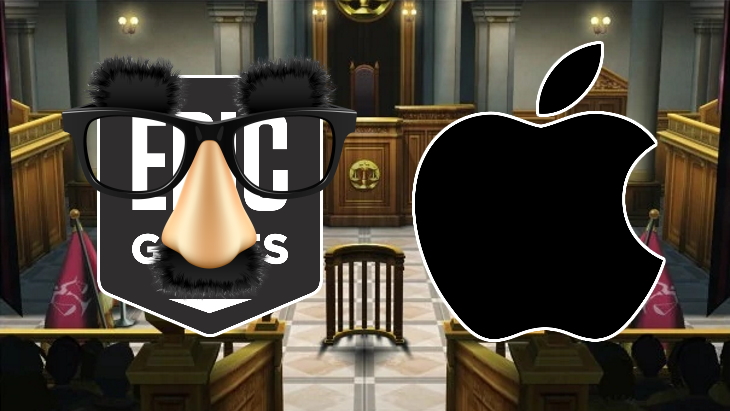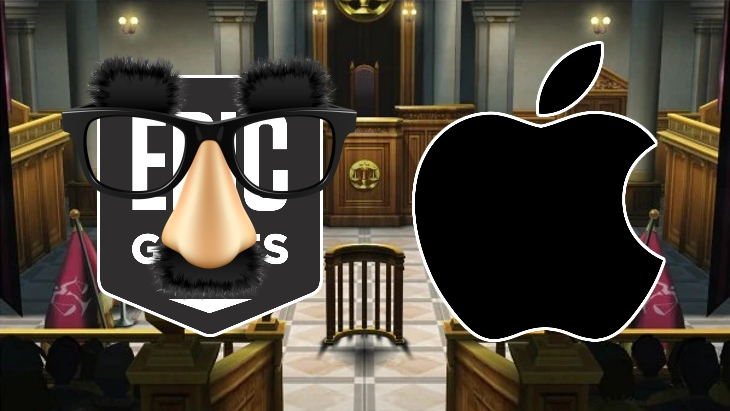

Epic Games have reportedly hired a lobbyist to propose a bill in North Dakota that would allow alternate payment methods on the App Store and Google Play.
The New York Times reports the bill aims to make Apple and Google allow for alternate payment methods on their store, and downloads from outside their respective stores. It would also prevent them from forcing companies based in North Dakota from giving a share of their sales of their apps (up to 30% based on Apple and Google’s previously reported terms).
The bill was brought before North Dakota state senator Kyle Davison by a lobbyist, and introduced it; with the hearing drawing the attention of Washington lawyers, newspapers, and Silicon Valley executives; much to the surprise of Davison. “She said to me that this could be big. But to me, that means the local newspaper is going to come with a camera. I would not be truthful if I said I expected the reaction.”
The bill’s supporters claim it would help smaller companies, while Apple’s chief privacy engineer Erik Neuenschwander testifying the bill “threatens to destroy iPhone as you know it.” The discussion and battle of Big Tech’s influence and control had spilled out to smaller state-based cases like this.
Davison reportedly stated that he was trying to remove the bill’s proposal to allow downloads from outside Apple and Google’s own stores; to (in The New York Times words) “ease some of his colleagues’ concerns.”
Google already allow downloads from outside the Google Play store. Meanwhile, an Apple spokeswoman told The New York Times that most of the companies in North Dakota that shared revenue earned less than $1 million a year from their apps, and as such only played 15%. She also stated that most apps were free, and did not pay any commission.
Debate on the bill began February 15th, and should a vote approve it will move to the House. Even if it fails, The New York Times report “nearly identical” legislation is being considered in Georgia, Arizona, and being introduced in Massachusetts. Lobbyists are also reportedly pushing for these bills in Wisconsin and Minnesota.
The North Dakota bill was drafted by lobbyist Lacee Bjork Anderson; who reportedly stated in an interview that she had been hired by Epic Games. Whether Epic Games had hired lobbyists for the proposed bills in other states is unknown.
Anderson had also been paid by the Coalition for App Fairness; a group of companies against the app store commissions including Spotify, Match Group, and Epic Games.
Anderson claimed that the bill may not pass due to confusion and a lack of technical knowledge among some senators, and lobbying by Apple. “They’re setting up Zoom calls with every senator,” she said. “That doesn’t necessarily play well up here – having California executives or lobbyists trying to tell people what to do.”
Discussing Apple Insider’s report on the story, Epic Games CEO and Founder Tim Sweeney stated on Twitter “North Dakota’s effort to combat app store monopolies is awesome for consumers and developers. The Coalition for App Fairness organized the outreach, lobbying, and developer participation. Can’t take credit for it, but Epic is proud to be a part of it!”
Sweeney also condemned how some had reported on the story as “Guesswork presented as facts.” He took issue with Engadget’s article subtitled “The bill opens the possibility of circumventing trusted payment methods.” Sweeney retorted “Like Visa, Paypal and Stripe are untrusted without Apple gatekeeping?”
As we previously reported, Epic Games announced that the price of V-Bucks, Fornite‘s in-game currency that can be bought with real money, would permanently be 20% cheaper on all platforms. However, on Android and iOS, a new payment method was introduced.
Rather than buying the V-Bucks through Google Play and the App Store respectively, Epic Games launched the “Epic direct payment.” “When you choose to use Epic direct payments,” the announcement explains, “you save up to 20% as Epic passes along payment processing savings to you.”
This is due to Apple and Google collecting a 30% fee through all V-Bucks bought on their respective platforms. As such, the 20% drop has not been applied to purchases made through them. Epic Games state that “If Apple or Google lower their fees on payments in the future, Epic will pass along the savings to you.”
Shortly after this announcement, Apple and Google both removed Fortnite from the App Store and Google Play Stores respectively due to Epic Games violating their terms of service.
Epic Games issued legal action against both, citing that they had a monopoly over their stores on iOS and Android. Apple had allegedly threatened to terminate all of Epic Games’ App Store developer accounts and cut off tools for development on iOS and Mac.
Epic Games may have been expecting action from Apple however, having made a parody of Apple’s own 1984 commercial; appealing to their fans to support them. Further, the #FreeFortnite Cup was announced.
Apple later accused Sweeney of asking for exception from the App Store terms and conditions. Sweeney tweeted that Apple’s statement was misleading, and presented screenshots of the alleged emails. Microsoft also filed a statement of support, favoring Epic Games.
In late August, Apple terminated Epic Games’ App Store developer account. This means Epic Games will no longer be able to submit new apps, or updates to existing ones (such as the Infinity Blade games).
Epic would successfully win a restraining order that month, denying Apple removing Unreal Engine-based games from the App Store (thereby harming developers who used the engine for their games). Epic Games later filed an injunction asking that Apple be prohibited from “taking any adverse action against Epic.”
In early September of this year, Apple issued a counter-suit against Epic Games. Therein they asked for compensation and damages, claiming Epic Games’ actions were “little more than theft.” Both parties would later agree to a trial by judge, rather than a jury. That trial is set for May 3rd, 2021.
Judge Yvonne Gonzales Rogers gave a preliminary injunction in October. Apple did not have to reinstate Fortnite on the App store, but they had a restraining order preventing them from revoking developer tools from “Epic Affiliates;” such as those using the Unreal Engine for their game.
Judge Gonzales Rogers later dismissed two of Apple’s claims at a hearing on November 10th, including their claim of Epic Games committing theft. She told Apple lawyer Anna Casey “You can’t just say it’s independently wrongful. You actually have to have facts.”
Sweeney recently drew ire for comparing the Epic Games vs. Apple lawsuit to the civil rights movement.
Image: Ace Attorney Fandom wiki, Wikipedia [1, 2], PNG Egg



